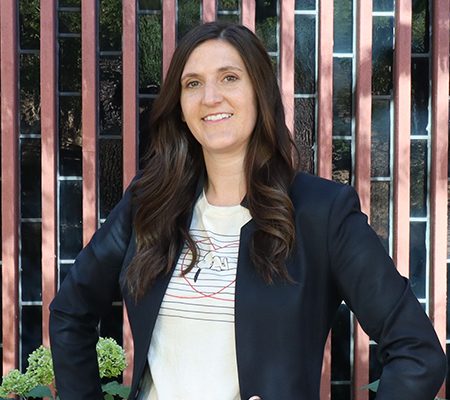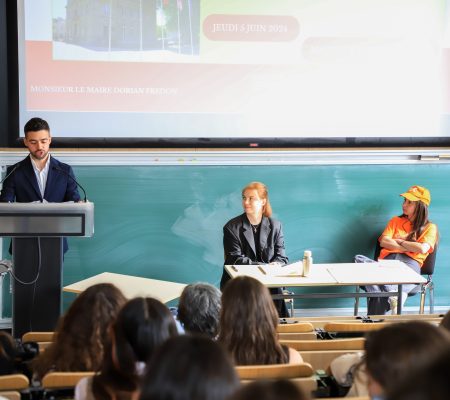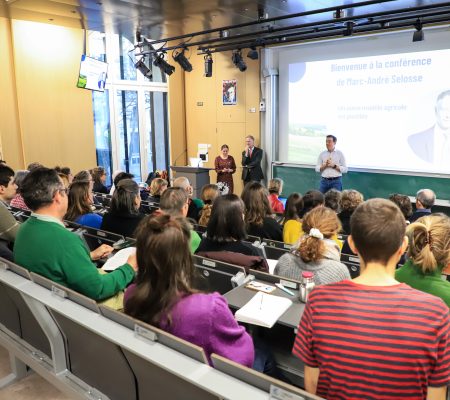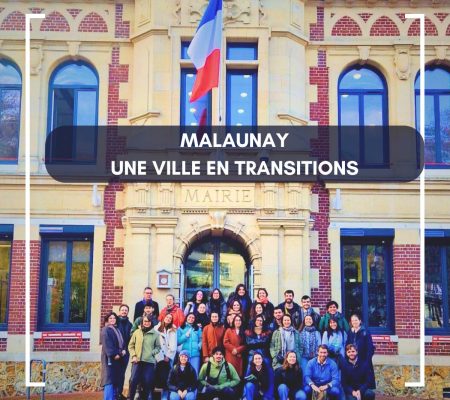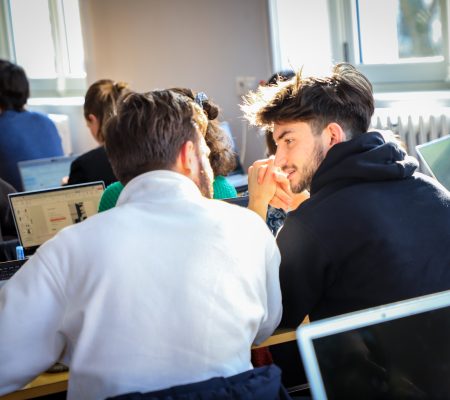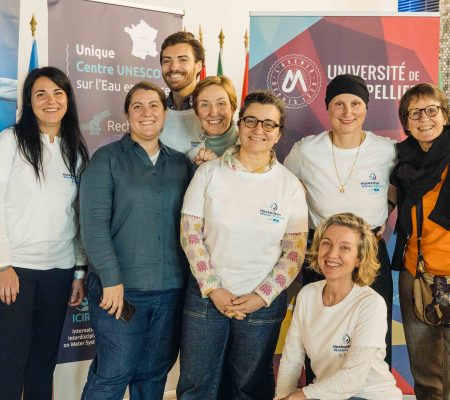Thèmes : student
Portrait d’étudiant RSEDD 2023
Zoom sur Hélène Barthèlemy
La « boucle serait bouclée », une boucle vertueuse.
Les expériences professionnelles variées d’Hélène montrent qu’elle sait faire preuve d’une grande capacité d’adaptation : de l’agriculteur du Val de Saône aux acteurs internationaux du jouet, elle a toujours su adapter son discours et son travail. Hélène a un profil pluridisciplinaire favorisant une approche globale (vision à 360°) et stratégique des problématiques, elle est également force de proposition en termes d’organisation et de stratégie. Des atouts majeurs qui ne sont pas passés inaperçus au sein de son entreprise.
Salariée au sein de la société Djeco, Hélène occupe actuellement un poste de chef de produits. Si Djeco n’a pas encore initié de véritable démarche RSE, les marqueurs de cette dernière font partie de son ADN : respect et durabilité par essence.
En effet, depuis sa création en 1954, l’entreprise familiale place le développement de l’enfant au cœur de ses préoccupations et invente pour lui des jeux et des jouets conjuguant à la fois créativité, design et qualité.
En croissance constante, l’activité de Djeco leur impose aujourd’hui de mettre en place une nouvelle organisation qu’ils souhaitent inscrire dans une approche durable globale.
L’évolution des tendances et du marché accélère ces changements puisque leurs clients sont à la recherche de produits plus responsables.
L’intégration de ces préoccupations au cœur de leurs métiers se formalise déjà par des actions concrètes. A titre d’exemple, l’éco-conception représente désormais une composante majeure de leurs métiers achat, qualité et développement produit. Elle passe notamment par la réduction de leurs emballages, le choix de matières premières issues de filières durables, un transport des marchandises plus respectueux de l’environnement et des circuits d’approvisionnement plus courts.
Mais la Direction de Djeco souhaite aller plus loin et faire de la RSE un pilier dans la définition de ses axes stratégiques de développement en créant pour cela un poste de Responsable RSE.
Parce qu’Hélène porte naturellement les valeurs de la marque Djeco et qu’elle a été formée aux problématiques du développement durable au cours de sa formation universitaire, sa Direction lui a proposé d’occuper le poste de Responsable de la RSE.
Cette nouvelle mission représente pour elle l’occasion de « relier » ses deux profils universitaires et professionnels : droit de l’Environnement, gestions des ressources et des déchets, productions respectueuses, économie circulaire, ou solidarité, autant de sujets travaillés par le passé et qui lui tiennent à cœur.
Le diagnostic réalisé par Hélène au cours de la mission leur permettra de mieux cerner les enjeux qui les attendent et aidera à la définition de leurs objectifs, plans d’action et outils de suivi.
L’objectif du Responsable RSE est de rendre l’entreprise socialement responsable. L’engagement dans cette nouvelle mission, tant dans ses dimensions stratégiques qu’opérationnelles, exige donc l’acquisition de compétences spécifiques. C’est ainsi qu’Hélène a rejoint les bancs du Mastère Spécialisé RSEDD !
Découvrir les autres actualités de ISIGE - MINES Paris
Portrait d’étudiant EnvIM option Asia
Let’s discover Pietro Mantovani, EnvIM student Asia option
Climate change and relative measures to mitigate and to adapt to its impacts represent the most important challenge that our whole society is facing and I want to be an active part of it, but with the proper technical skills.
1. Where are you from Pietro ?
I come from a Economic background, a master providing students with a solid training, emphasizing rigorous analytical thinking and advanced quantitative methods, with courses such as Econometrics, Microeconomics for Finance and Statistical Learning.
I chose the latter path, arriving at the Credit Risk Analyst role I occuped in Santander Corporate and Investment Banking. My role allowed me to observe the main market drivers, and it is through these that I came closer to a greater understanding of how climate change is impacting the industries that I covered.
Environmental degradation, depletion of natural resources and the associated losses in biodiversity are presenting multiple, interrelated challenges. Issues such as water scarcity, deforestation and unsustainable agricultural practices, waste and pollution are increasingly impacting business and investment activities. As food system has a very heavy carbon footprint, my analysis is increasingly integrating key aspects such as land use and deforestation.
Remaining on the food and food security issue, if we just consider the impacts that climate change has and will have on agricultural productivity, and the relative implications for feeding a rapidly growing population, we get a measure of the magnitude of the challenge ahead.
We are literally talking about changing the consumption habits of billions of people and changing the production habits of hundreds of millions of producers.
Inequalities generated by climate change are massive. It is a fact that droughts and floods hits poor and marginalized communities first and worst, causing enormous damages to already fragile economies. People in low-and lower-middle-income countries are more likely than people in high-income countries to be displaced by sudden extreme weather disasters.
2. What are your main motivations for this Post Master application ?
After working 4 years in the investment banking industry, I decided to turn my professional career around by joining the Mastère Spécialisé EnvIM, inseptember 2022.
As a financial analyst working within a leading international banking group, I’m in a privileged position to see how climate change is becoming more and more prevalent within the day-to-day of the financial industry, and how sustainability is being increasingly integrated.
I believe that topics such as climate change and related energy transition, the management of resources such as water and land, must be delegated to people with the proper knowledge. Furthermore, the more I go on with my career, the more I realize that to have a real overview of these problems I need to think differently, interacting with people with other perspectives and backgrounds.
3. What are your professional goals and career project?
My goal is to integrate more sustainability in my future professional career and projects. I want to establish myself as an expert in environmental management field. I want to learn how to assist companies to manage their sustainability trajectories, taking project management responsibilities and leadership roles.
I want to become an attractive future candidate for companies in France or around the world, having interdisciplinary skills on the analysis of long-term pathways and policies related to the national, regional and global food and land use, forestry, water management, biodiversity, waste and circular economy, helping companies towards their transformation in line with the SDGs, the Paris Climate Agreement and their race to net zero emissions.
Découvrir les autres actualités de ISIGE - MINES Paris
Portrait d’étudiant RSEDD 2023
Zoom sur Aurélie de Salinelles
Les perspectives sont riches, dans un groupe dont un des piliers de l’ambition stratégique à dix ans, porte exclusivement sur sa capacité à se transformer en entreprise durable.
En charge de l’aménagement et des projets de transition durable en gare, Aurélie ressent aujourd’hui une pression très forte à trouver le bon équilibre entre l’étendue des contraintes juridiques, contractuelles, budgétaires, opérationnelles et les opportunités de ce type de projet de développement durable à moyen et long terme.
Je souhaite aujourd’hui nourrir un intérêt personnel et professionnel fort, et donner une nouvelle impulsion à ma carrière.
Quelle est ta formation initiale ?
Diplômée d’État en Architecture et titulaire d’un master de recherche en Histoire de l’architecture et des formes urbaines, mon intérêt et ma curiosité pour les enjeux économiques et sociétaux impactant les pratiques de maîtrise d’œuvre et de maîtrise d’ouvrage m’ont amenés, dès mes premières années de pratiques professionnelles, à élargir mon champ de compétences dans les domaines du développement territorial et de la régénération urbaine, notamment en intégrant le mastère Urbanisme de Sciences po.
Pour quelles raisons as-tu décidé de rejoindre le MS RSEDD ?
J’ai vu grandir la place de la RSE et du Développement durable dans mes pratiques et missions au fil des années. En programmation, en conception, dans le cadre des achats ou des marchés publics, mais aussi dans les domaines du marketing et de la communication, la place prise par ces enjeux devient déterminante. Pour ne citer que quelques exemples, le criblage d’un projet suivant la formule « Energie Matériaux Carbone » détermine aujourd’hui sa faisabilité, les critères RSE sont de plus en plus impactant lors des consultations en commande publique, et la posture « durable et made in France » est incontournable pour promouvoir les concepts auprès des régions et autorités organisatrices qui financent les projets.
Au quotidien, quelles sont les nouvelles pratiques et les freins que tu as pu identifier au sein de ton entreprise pour déployer des actions RSE ?
Certains des derniers projets que j’ai menés démontrent l’émergence de nouvelles pratiques, comme le lancement du premier contrat cadre intégrant le réemploi de mobiliers existants et la recherche de mise en œuvre de matériaux recyclés, le déploiement d’abris de quai équipés de panneaux photovoltaïques et permettant l’autoconsommation partielle de la gare, ou encore le développement d’un système de confort thermique « à la place » faiblement énergivore.
Le contexte réglementaire ainsi que l’insistance des pouvoirs publics obligent les acteurs publics et privés à investir massivement sur ces sujets. Ainsi, la publication des décrets d’application de la loi Agec en 2020 a entrainé une évolution des missions du pôle que je dirige pour y intégrer deux nouvelles problématiques dimensionnantes : la gestion des déchets (du tri à la source jusqu’à leur valorisation) ainsi que la mise à disposition de fontaines dans les ERP pour lutter contre le plastique à usage unique.
Ces réglementations impactent fortement notre modèle économique et nécessite une posture résolument innovante, pour transformer ces obligations en nouvelles opportunités.
Ainsi, les projets de Plan Déchets ou réemploi de mobiliers sur lesquels mon équipe travaille se veulent vertueux économiquement, et garants de robustesse pour les entreprises, face aux diverses crises auxquelles elles ont à faire face. Ainsi, l’usage de ressources locales dans nos contrats permet d’être aujourd’hui moins impacté par la flambée des coûts de matières premières importées et les délais d’approvisionnements qui explosent… sans que cela ne soit pour autant suffisant. Certaines opportunités liées à la production d’énergie peuvent même être dimensionnantes dans le modèle économique d’entreprises disposant, comme SNCF, de ressources foncières et bâties importantes.
Le bon traitement des enjeux RSE nécessite une vraie vision stratégique et une prise de recul qui n’est pas permise par la pratique professionnelle et l’apprentissage « sur le tas ».
Cela d’autant plus qu’il est encore rare de disposer en interne de profils formés, et que des groupes tel que celui dans lequel j’évolue, font encore majoritairement appel à une expertise externe pour accompagner ces stratégies pouvoir mener une réflexion sur le sujet et interroger nos pratiques « de l’intérieur ».
Une fois diplômée, quelles seraient tes possibilités d’évolution professionnelle ?
Mon profil de formation ainsi que mon parcours au sein du Groupe SNCF m’offrent des possibilités d’évolutions variées, aussi bien en maîtrise d’œuvre qu’en maîtrise d’ouvrage à des échelles extrêmement diverses (de l’aménagement en gare jusqu’au projet urbain) par la richesse des missions et grands projets portées par SNCF et ses filiales, en France ou à l’international.
Grâce à ce MS, je pourrai apporter une vision stratégique construite pour des projets d’ampleur que je souhaite diriger dans la suite de ma carrière, (Hubferroviaire en France ou à l’international dans le cadre des Appels d’offre auxquels participe le groupe SNCF ou ses filiales).
Découvrir les autres actualités de ISIGE - MINES Paris
Portrait d’étudiant EnvIM option World
Let’s discover Maya MIKAIEL, EnvIM student World option
“Environmental issues are obviously transboundary: addressing this modern challenge is only feasible through international cooperation.”
- Where are you from Maya ?
To complement my engineering degree, in urban planning and environment (University of Tours, FR) and my specialization at Radboud University (NL) in environmental governance and politics and after having finished my internship at ENERPARC SOLAR, the EU’s largest photovoltaic asset owner, I applied for the EnvIM World Postmaster, knowing how much of an uplift this specialised degree could mean for my future.
“I stick to my inner child desires and expect contributing to a better and less-alarming future.”
By studying the decision-making process at the European level to model ecological transition, I learned the process of encouraging populations to change their behavior. In order to implement this outcome, my scholar view needs to be balanced with a practical viewpoint. As well as meeting teachers and lecturers in the Netherlands who worked within the United Nations, I found an interest in providing guidance to leader groups and big companies with whom I would wish to work for as the head of the environmental department.
I spent a year in the French Navy alongside my ninth grade. To this day I still cherish the work ethic they instilled in me: “Honour, Values and Discipline”. I also learned the values of hard work, the importance of team building and the deeply rewarding feeling of accomplishment. By experimenting onto real-life cases within companies and institutions, I would be able to grow as a stakeholder of the ecological transition.
The first time I heard about the EnvIM post master I saw how tailor-made it was for me. Entering this programme took part in the implementation of a healthy lifestyle, and help me to fulfill my professional and personal projects. I joined the post-Master EnvIM option World in 2023.
- How could you, with your own background and field of expertise, contribute to an interdisciplinary problem analysis and problem-solving ?
Resolving problems using innovation is the perfect definition of what an engineer should do. By graduating with such a qualification has taught me not only to think like an engineer, but also like a researcher thanks to my specialization and Erasmus semester.
In order to define the problem, an analysis of the different facets composing it is necessary. My tri-nationality broadens the horizons one could usually look for. I was raised in a home where France, Lebanon and England mixed every day, showing me from my youngest age that a given perspective can be shifted to reveal new angles that design new opportunities, thus new solutions.
Hence, my personal experience and cultivation helps me define an interdisciplinary problem by looking at multiple prisms that can be studied individually at first, then brought together to widen the final comprehension of the problem. My engineering background offers the whole technical expertise needed to apprehend a given situation’s complexity.
Scientific research has followed my curriculum during my three years in engineering school: in France, I centred my end-of-studies thesis around the problem of sky legal limitations, use of satellites and light pollution.
Analysing and answering an interdisciplinary problem is tantamount to a marathon: when the subject seems to be extensively studied, new perspectives arise from new pieces. I learned, from my whole experience as a student and as an individual, how to deal with intricate challenges, the hardest I have in mind being the answer to climate change and environmental urgency.
In a nutshell, before EnvIM my knowledges were very theoretical, and even if I could, with this qualitative amount of theory, attempt to analyse, better understand and solve any environmental and urban challenge, I had a need for gaining hands-on experience and training in companies and administrations: . EnvIM World is the complement I needed. To this very knowledge-based education, mostly oriented towards a professional finalization, the many projects helped me to assert my proactive stance by acting. Specifically, it will legitimize my applications to high consultancy positions connected with my ambitions
- What are your professional goals and career project? How could this program help you to fulfil your goals ?
My best-case scenario would be to join a leading company or a development programme of an International Institution, as a coordinator or consultant.
I am confident that the EnvIM Postmaster will have a big impact on my life, and I cannot really imagine myself without completing this programme. Being an EnvIM student drives the same ambitions I nurture in my life: to be this golden opportunity for me to make a real difference in this world.
Découvrir les autres actualités de ISIGE - MINES Paris
Portrait d’étudiant RSEDD 2023
Zoom sur Jonathan Lecluze
“Le développement durable n’est pas seulement l’apanage d’une entité dédiée à ces sujets, mais qu’il peut et doit être inscrit dans chaque geste de chaque opérationnel.”
Pourquoi as-tu décidé de rejoindre les bancs de l’ISIGE ? Quel a été le déclic ?
Il y a un peu plus d’un an, un événement important de ma vie personnelle m’a offert l’occasion de mieux me connaître et de savoir l’importance qu’avait le sens de mes actions, et ainsi de ma vie professionnelle dans mon bonheur. J’ai alors compris qu’au schéma classique de promotion managériale que je poursuivais, je devais substituer un projet fort de sens.
A cette époque, j’étais déjà sensibilisé depuis quelque temps aux problématiques climatiques et énergétiques, initialement grâce aux conférences de Jean-Marc Jancovici. Plusieurs mois m’avaient été nécessaires pour en mesurer les implications radicales pour notre société, notre économie et notre mode de vie. Un événement personnel avait dû rencontrer cette réflexion pour que j’étudie le sujet de près, que je l’ouvre à d’autres aspects du développement durable et qu’il occupe une part importante de mon temps libre. Il avait finalement fallu l’opportunité du lancement d’un projet “eTCO: environmental – Total Cost of Ownership” pour que le curieux ingénieur supply chain pour le ski chez Décathlon que j’étais devienne le Product Manager AGILE passionné que je suis actuellement. J’aime cet aphorisme de Sénèque : “Il n’est pas de vent favorable pour celui qui ne sait pas où il va”.
Au quotidien, quelles sont les actions que tu mets en place ?
Depuis un an bientôt donc, j’œuvre chaque jour à changer l’état d’esprit des quatre-cents acheteurs de Décathlon en leur permettant de prendre des décisions stratégiques et opérationnelles dans une démarche de coût complet qui intègre les émissions de CO2 associées à la production de nos produits, et celles de tout leur cycle de vie. C’est un projet fondamental pour notre chaîne de valeur et notre entité Développement Durable. Il connaît un écho retentissant. Il vise notamment à augmenter notre niveau de résilience en favorisant nos approvisionnements locaux, mais il a aussi pour objectif de favoriser nos fournisseurs disposant d’un mix énergétique décarboné ou engagés dans une démarche de décarbonation de leur mix énergétique.
La solution informatique qui permet cette bascule est aujourd’hui intégralement développée avec succès. Nous attaquons la phase pilote, qui est une brique importante de la conduite du changement. C’est même selon moi le chantier le plus critique.
Ce projet eTCO, je souhaite continuer de l’animer au sein de Décathlon, car je veux “transformer l’essai” jusqu’à ce qu’il se propage, et se diffuse au sein des métiers puis s’installe durablement dans la prise de décision de notre chaîne de valeur.
Qu’attends-tu du mastère spécialisé RSE DD ?
D’après moi le développement durable est un enjeu vital pour les organisations dans un monde où les risques climatiques, énergétiques, sociaux, sanitaires, économiques et d’approvisionnement vont croissants.
Je pense que la RSE est une manière de répondre à ces enjeux, que c’est une démarche utile aux personnes et aux organisations. Elle est porteuse d’un sens fort pour moi.
Je souhaite donc acquérir les connaissances théoriques et pratiques concernant la RSE et le développement durable afin de passer de mon rôle de Product Manager eTCO à un rôle de spécialiste et d’influenceur RSE & DD au sein de l’entité “Value Chain” de Décathlon. Je crois aussi en la richesse de l’échange avec des professionnels, des chercheurs et d’autres étudiants de parcours divers et d’organisations différentes. Je comprends que le mastère favorise cet échange.
Quels sont tes objectifs à moyen et à long terme ?
A terme, je souhaiterais m’appuyer sur cette expérience pour accompagner d’autres organisations dans leurs réflexions stratégiques autour des sujets de développement durable. Nous pouvons imaginer que je puisse dans quelques années accompagner une entreprise dans sa stratégie sur les achats durables en m’appuyant sur mon expérience eTCO et sur les connaissances acquises lors du mastère. Tout cela ne peut et ne doit pas être figé, mais telle est ma vision à date de mon projet professionnel.
Découvrir les autres actualités de ISIGE - MINES Paris
Portrait d’étudiant EnvIM option Asia
Let’s discover Elsie Nakhle, EnvIM student Asia option
“I hope to make a change in this world for the better, even if only a little, but being the over-achiever that I am I know I won’t just be satisfied with that.”
1. Who are you Elsie ?
Initially, I pursued studies in engineering and hold a Bachelor of Engineering in Electrical Engineering from Notre Dame University, Lebanon. I had the opportunity to study several topics within the field including fiber optics, electromagnetics, industrial electrification, power electronics and digital integrated circuits. While my background is quite technical and heavily related to engineering, I always had in mind to work in sustainability and the initial field that came to mind was renewable energy and most notably, solar energy.
First, I had the opportunity to take part in an apprenticeship in Energy Consultancy, through which I was able to get acquainted with the concepts of energy efficiency for buildings, indoor air quality and energy audits. This was the initial step I had taken in the direction of the world of energy management. After that, I had the opportunity to work as an Electrical Engineer, specializing in solar PV design and installations in a company in Lebanon.
However, I always felt that I was only skimming the surface of what I could actually achieve and get informed about, and there was generally much more to learn in terms of environmental issues, sustainability and energy transition, especially being from a country such as Lebanon where there was and still is the culmination of a various number of detrimental environmental crises. Water scarcity, food security, destruction of ecosystems and natural habitats, depletion of natural resources and sources of energy are major issues that should be made more aware, not only for the benefit of mankind but for the millions of species inhabiting the earth. Being environmentally conscious is a responsibility for governments, companies and individuals for the sake of not only adapting to climate change efficiently but also being able to put in place mitigation strategies.
2. To what extent are you involved ?
I always believed that it is my responsibility as a functioning member of society to contribute in any way I can to its betterment and improvement.
I had several opportunities to come across various topics relating to sustainable development and the need for active resolutions to issues directly under the umbrella of the 17 sustainable development goals through my various involvements as a Chair and member of the organizing team of several Model United Nations conferences both locally (in Lebanon) and internationally. These conferences highlighted the importance of collaborative work and active contribution to innovative solutions related to real-life conflicts on different socio-economic and environmental levels. It was a wonderful way for the youth to truly roleplay as government officials and representatives and participate in debates, deliver speeches, and write resolutions as if they were themselves members of a UN body or committee. It was an amazing experience for me to be organizing these conferences with like minded individuals.
I also had the opportunity to be part of several volunteering initiatives for preserving the environment as a member in Rotaract Sahel Metn, Lebanon. I had the chance to organize beach clean-ups, and take part in several awareness webinars related to the importance of recycling, waste management, energy management, etc. among other activities related to professional and personal development.
3. Why did you choose the Envim postmaster ?
I think at some point I realized I was too focused on renewable energy which is only one aspect in terms of energy and environmental management and so joining the Post-Master EnvIM was the chance for me to see more than just the tip of the iceberg.
The chance to be able to actually make a change through my education and participation in the program thrilled me, as well as the prospect of actively researching and learning about different modules of different subjects relating to water management, air quality and pollution, circular economy, urban planning, agroecology, …
Furthermore, being able to take these classes from two very prestigious universities with world-renowned reputations and high quality education was an added criteria to why I chose this program specifically.
I was also very excited (and may I say very lucky later on) to meet people from different backgrounds discovering the same modules and having active enriching discussions on these important environmental issues.
4. What are your professional goals and career project ?
I want to be able to keep on learning more and absorbing all the knowledge I can in the field of environmental management, in order to become a reputable individual with the proper set of skills and information related to climate change mitigation and adaptation, circular economy, biodiversity, energy transition, and sustainable resources. This multidisciplinary and multilevel approach could help me in developing new concepts in the field and become a valuable asset for NGOs, companies and even governments.
Découvrir les autres actualités de ISIGE - MINES Paris
Portrait d’étudiant EnvIM option Asia
Let’s discover Aurélie BRUNSTEIN, EnvIM student Asia option
“Change is not coming fast enough.”
1. Who are you Aurélie ?
With a passion for ecology from a very young age, I have been involved in local initiatives to raise awareness on climate related issues over the last few years. I am now at a point in my life where I want this personal engagement to influence and impact more widely and be taken to a professional level.
I developed my passion for ecology as a teenager after I read La Terre en heritage by the Jean-Marie Pelt. That added to my fascination for science and technology, drove me towards engineering studies, more precisely, at EPF engineering school in France because there was a curriculum dedicated to energies and environment. However, the three-years common curriculum convinced me to specialise in aeronautical and space, a field with complex technologies and environmental challenges.
Nine years ago, I started my journey at Safran, working on future engine performance, strategic studies and most lately, project management. Sadly, I came to the conclusion that there was no optimal solution to the aviation environmental footprint. In my view, the best solution is to travel less or slower. Hence, my professional position was not fulfilling my desire to take part into building a sustainable world. In addition, the 6th IPCC report issued in August 2021, followed by the COP26 in Glasgow was a trigger for me.
By calculating my carbon footprint, it became clear to me that individual action won’t be sufficient to reach the Paris Agreement of keeping global warming under 2°C. This is why I wish to dedicate my work to the environmental issues we face. I aim to capitalise on my scientifical background, my specialization in energy as well as my professional skills gained over the years at Safran, to help address challenges beyond my personal impact and through companies or institutions with significant influence.
With that in mind, I took part in a project at Safran looking to include eco-design into engine development process and more precisely consider the whole life cycle when designing a product.
2. To what extend are you involved in ?
Until being able to fully dedicate my professional work to the environment, I decided to volunteer in a number of local initiatives on my spare time.
Firstly, I am a facilitator for the “climate fresk”, a serious game helping to understand climate change drivers and encourage participants to take action. The game involves drawing a chronology of climate sensitive events as well as engaging with participants on how we can all act to foster change.
Secondly, I lead a project for “The shifters”, a French NGO. The project is aiming to create a tool to raise awareness on our goods and services consumption, which is way above our basic needs and highly harmful for the environment.
The personal enrichment I get from this volunteering work is far beyond expectations. Yet, whilst I see the importance of local initiatives, I am convinced it will take more to shift towards a more sustainable life on our planet. For that, I would like to gain credibility in the field, before taking it to the next level and joining a professional organisation working on climate challenges.
3. What are your professional goal and career project? How could EnvIM program help you to fulfill your goals?
My professional goal is to become a change agent at a private or public organization, or for policy makers. Namely, positions like sustainability consultant or manager. I am interested in assessing the environmental and social impacts of organizations to develop and implement sustainability programs. Likewise, a position as an environmental and climate advisor in a public institution, or NGO would highly interest me.

